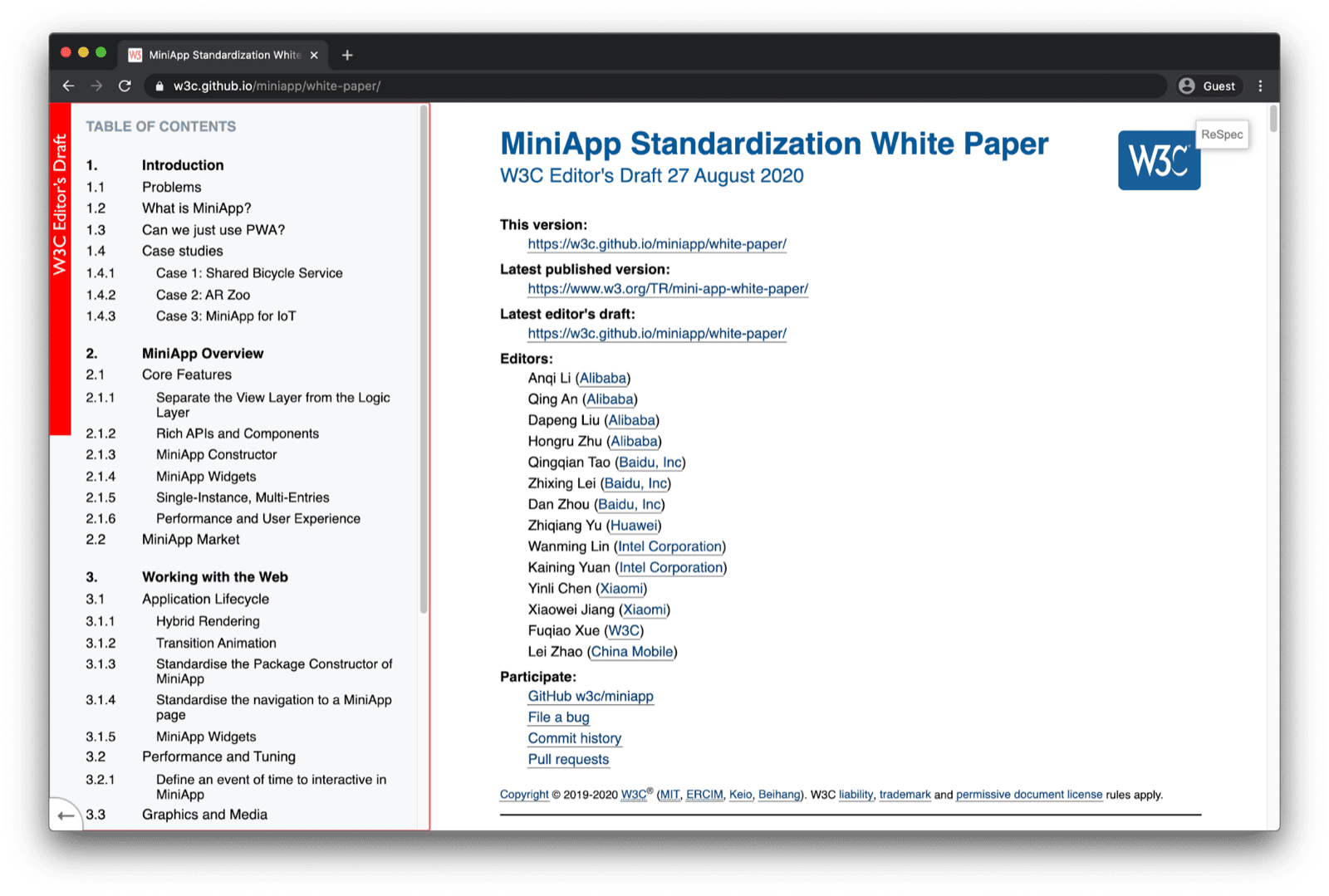Mini app popularity
Mini apps have seen tremendous growth. WeChat mini apps as of June 2020 have reached 830 million active users, Alipay mini apps 401 million active users as of April 2019, and Baidu mini apps in the same month 115 million active users. Effectively companies have traded building apps for the two operating systems iOS and Android and additionally the web for building apps for three or more super apps platforms. The differences between each super app platform may not be as big as the differences between Android, iOS, and the web, but nevertheless they exist. Where on Android, iOS, and the web, we have seen cross-platform approaches like Flutter, Ionic, and React Native (for Web) gain popularity, in the mini apps ecosystem, we can see an effort led by the MiniApps Ecosystem Community Group with members from, among others, Alibaba, Baidu, ByteDance, Huawei, Intel, Xiaomi, China Mobile, Facebook, and Google to standardize aspects of mini apps.
Publications
Notable publications of the group so far include a whitepaper, a Comparison of APIs in MiniApps, W3C specs, and PWAs, and specifications and explainers on the following aspects:
- URI Scheme: spec, explainer
- Lifecycle: spec, explainer
- Manifest: spec, explainer
- Packaging: spec, explainer
- An exploration of widget requirements
W3C member and group participant Fuqiao Xue (W3C) has further published a Comparison of MiniApps and web apps on his own behalf, that is, not as an official group publication, but nonetheless worth the read.

Formal launch of the W3C MiniApps Working Group
On January 19, 2021, the MiniApps Working Group was formally launched in the W3C. The group uses the spelling and capitalization "MiniApps" to distinguish the standardization effort from the technology. You can read the group's charter to get a feel for the planned work. Leaders of the group introduced the effort as follows:
Currently, there are many variants of MiniApps developed by different vendors with different APIs. To enhance the interoperability between MiniApp platforms, mainstream MiniApp vendors including Alibaba, Baidu, Huawei, and Xiaomi have been working together in the W3C Chinese Web Interest Group since May 2019 and published a MiniApp Standardization White Paper in September 2019 as the initial standardization exploration for MiniApp technologies. As more global companies get interested in joining the MiniApp related discussion, the MiniApps Ecosystem Community Group launched during TPAC 2019 so that the global Web community can join the discussion.
Based on extensive standardization requirements, W3C today announced the formal establishment of the MiniApps Working Group, dedicated to in-depth exploration and coordination of the diverse MiniApp ecosystem with W3C members and the public, and enhancing the interoperability of different MiniApp platforms, thereby maximizing the integration of MiniApps and the Web, reducing technical fragmentation and the learning cost of developers.
"Maximizing the integration of MiniApps and the Web" in particular sounds very interesting. As a curious member of the group, I look forward to seeing where this endeavor is headed.
Acknowledgements
This article was reviewed by Joe Medley, Kayce Basques, Milica Mihajlija, Alan Kent, and Keith Gu.

